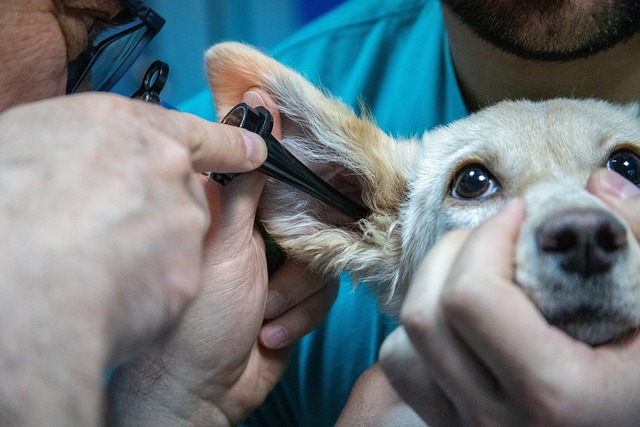
Veterinarians are an essential part of pet care. They are responsible for the diagnosis, treatment, and overall health of animals, including pets. Their role is critical in ensuring that pets live long, healthy lives and receive the care they need when they are sick or injured.
One of the primary responsibilities of veterinarians is to diagnose and treat illnesses and injuries in pets. This includes everything from routine check-ups and vaccinations to more serious conditions such as cancer and heart disease. They use a variety of diagnostic tools, such as x-rays and blood tests, to determine the cause of an animal’s symptoms and develop an appropriate treatment plan. They also perform surgeries, such as spaying and neutering, to prevent certain medical conditions and improve the overall health of pets.
Preventing diseases
Veterinarians also play a critical role in preventing diseases and injuries in pets. They provide regular check-ups and vaccinations to ensure that pets are protected against common illnesses such as rabies and distemper. They also provide advice on proper nutrition, exercise, and hygiene to help keep pets healthy and prevent conditions such as obesity and dental disease.
In addition, veterinarians serve as an important resource for pet owners. They can provide advice on training, behavior, and other aspects of pet care, and they can help pet owners understand the needs of their animals and make informed decisions about their care. They can also provide guidance on how to handle emergency situations and what to do if a pet becomes sick or injured. Furthermore, veterinarians also play a vital role in society by protecting public health and safety. They work with government agencies to control the spread of zoonotic diseases, which can be transmitted from animals to humans, and they also work to prevent the spread of diseases among animal populations.
Veterinarians – The welfare of animals
They also work to protect the welfare of animals and to ensure that they are treated humanely. In conclusion, veterinarians are an essential part of pet care. They are responsible for the diagnosis, treatment, and overall health of animals, including pets.
Their role is critical in ensuring that pets live long, healthy lives and receive the care they need when they are sick or injured. They also serve as an important resource for pet owners, and they play a vital role in society by protecting public health and safety. Without veterinarians, the health and well-being of pets and the public would be greatly compromised.
Keeping Your Pet Happy and Healthy Year-Round
Our beloved pets bring joy and companionship to our lives, and as responsible pet owners, it’s our duty to ensure their well-being throughout the year. Just as humans require different care and attention depending on the season, our furry friends also need specialized care as the weather and environmental conditions change. In this article, we’ll delve into essential seasonal vet advice to help you keep your pet happy and healthy all year round.
Spring: Renewed Vigilance for Parasite Control
As the weather warms up and plants start to bloom, parasites such as fleas, ticks, and mosquitoes become more active. These pests can transmit harmful diseases to your pets, causing discomfort and even serious health issues. Regularly check your pet is there any for ticks after outdoor activities and consult your vet about preventive measures. Flea and tick treatments are crucial to protect your furry friend, and heart worm prevention is also vital, as mosquitoes can transmit this potentially fatal disease.
Summer: Beat the Heat Safely
The summer heat can pose a threat to your pet’s well-being. Ensure they have access to clean and cool water at all times to prevent dehydration. Avoid exercising your pet during the hottest parts of the day, as they can easily suffer from heatstroke. Asphalt and sand can become scorching hot, burning your pet’s paws, so opt for early morning or late evening walks. Additionally, be cautious about leaving your pet in a parked car, even for a short period, as temperatures inside a car can rise rapidly and become life-threatening.
Fall: Allergies and Changing Routine
Just like humans, pets can experience allergies, often triggered by seasonal changes. If you notice excessive scratching, licking, or sneezing, consult your vet for proper diagnosis and treatment. Fall is also a good time to establish a consistent routine for your pet as schools reopen and work schedules normalize. Maintaining a consistent feeding, exercise, and playtime schedule can help alleviate anxiety caused by changes in routine.
Winter: Cold Weather Comfort
Cold weather can be harsh on pets, especially those with short fur or health conditions. Keep your pet warm with cozy blankets or pet sweaters when venturing outside. Shorten walks in colder temperatures, and be mindful of your pet’s paws on icy surfaces, which can cause painful cracks or injuries. Antifreeze is toxic to pets, so ensure that any spills are cleaned up promptly, and store chemicals out of reach.
Latest Posts
- Why Rabbits Move Their Noses
- Parasites in Dogs
- What Fruits and Vegetables Can Dogs Eat?
- How to Treat Pneumonia in Cats
- Why Cats Can See Well in the Dark
Category
- Care of Hamsters
- Cat Care
- Cats
- Dog Care
- Dogs
- Guinea pigs
- Guinea pigs Care
- Hamsters
- Parrot Care
- Parrots
- Rabbit Care
- Rabbits
- Why Cats …
- Why Dogs …
- Why…




